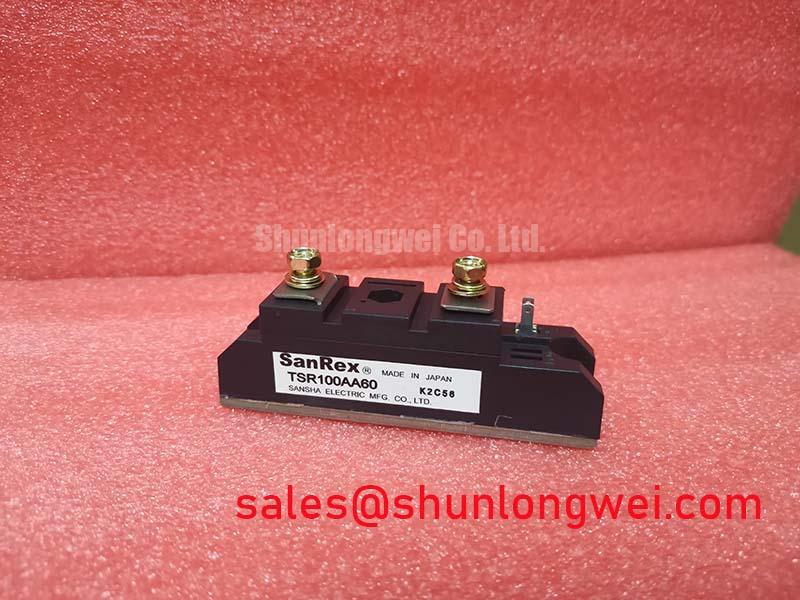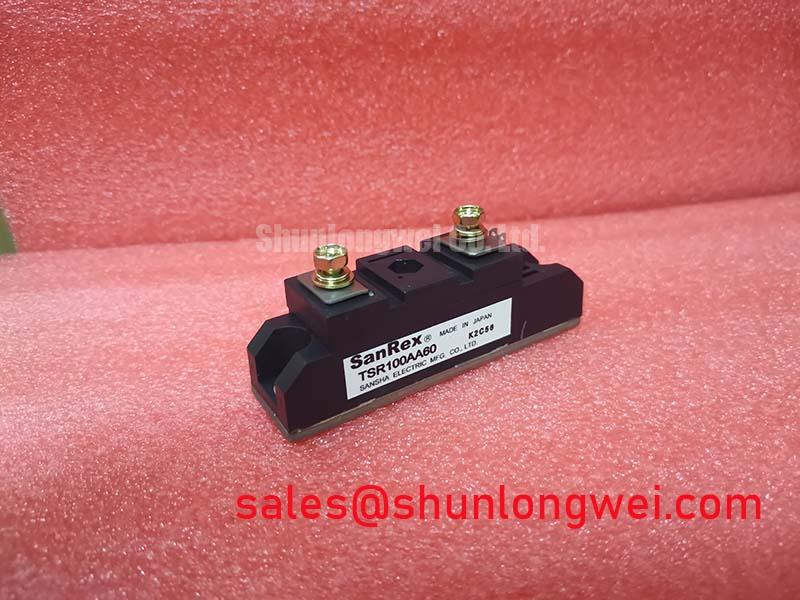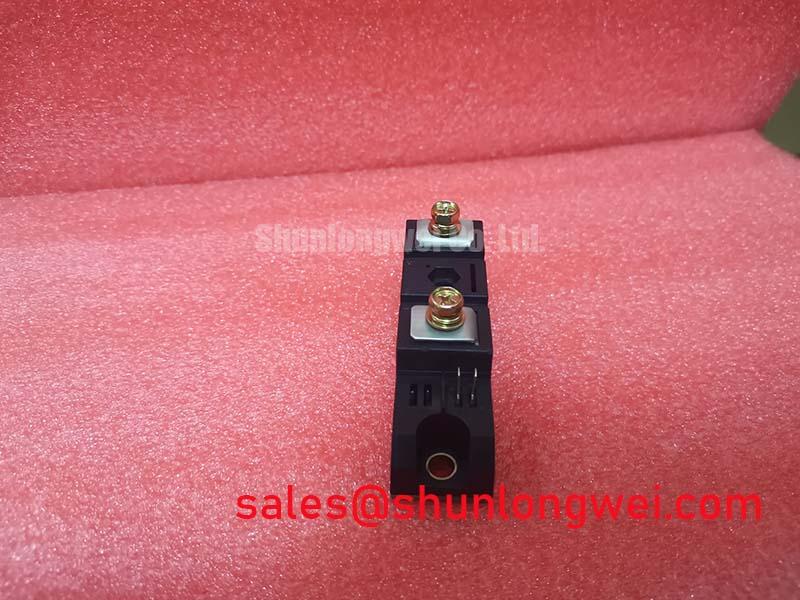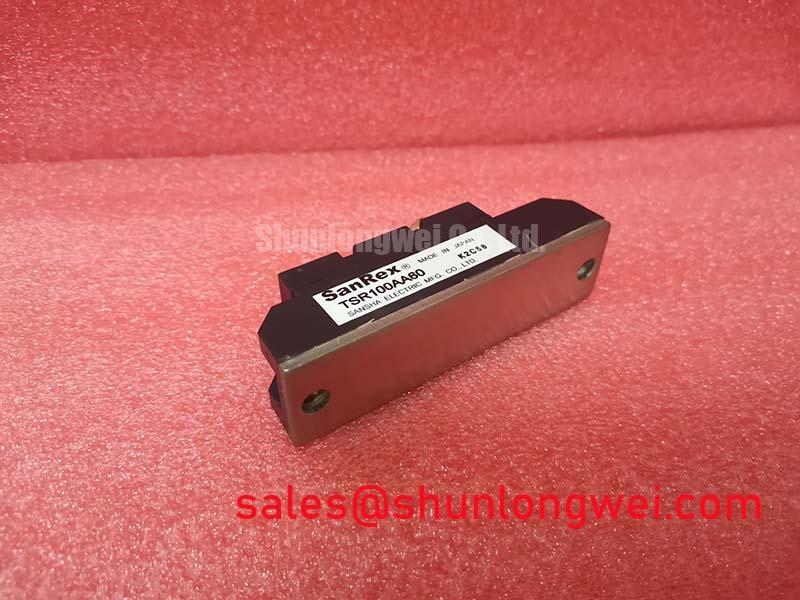Content last revised on November 14, 2025
Sanrex TSR100AA60 Thyristor Module: Datasheet Facts
Engineered for High-Reliability Power Conversion
The Sanrex TSR100AA60 Thyristor/Diode Module provides a robust foundation for industrial power systems, focusing on long-term operational stability. This three-phase bridge rectifier is architected for demanding environments where consistent performance is critical. Its core specifications are: 600V VDRM | 100A IT(AV) | 2500V Visol. Key benefits include superior voltage stability and simplified thermal assembly. For engineers questioning the practical advantages of its construction, the module's electrically isolated base directly answers the need for streamlined mounting, eliminating the requirement for additional insulating hardware and reducing system complexity.
Operational Arenas Demanding Unwavering Rectification
The TSR100AA60 is specifically designed for integration into the front-end stages of various power conversion systems. Its robust characteristics make it an excellent component for applications where reliability directly impacts operational uptime and safety. With a high surge current capability of 1980A (at 60Hz), this module is the superior choice for motor drives with high startup inrush currents.
- Variable Frequency Drives (VFDs): Forms the primary AC-to-DC rectification stage, providing a stable DC bus for the inverter. Its resilience to line transients is crucial in industrial settings.
- Industrial Power Supplies: Serves as a dependable rectifier in high-current DC power supplies for manufacturing equipment, electroplating, and other process-critical systems.
- Motor Controls: Ideal for DC motor controllers and soft starters, where its controlled switching and robust nature ensure smooth and reliable motor operation.
- Battery Charging Systems: Provides efficient and durable rectification for industrial-scale battery chargers, supporting logistics, backup power, and electric utility vehicles.
Data-Informed Evaluation: TSR100AA60 in Context
Informed component selection requires a clear comparison of key performance indicators. The following table presents the specifications of the TSR100AA60 alongside other components to provide engineers with the data needed for a thorough evaluation. This information is presented to support your design analysis based on datasheet-verified facts.
| Part Number | Configuration | VRRM (V) | IT(AV) (A) | Visol (V) |
|---|---|---|---|---|
| TSR100AA60 | Three-Phase Thyristor/Diode Bridge | 600 | 100 | 2500 |
| DF200AA160 | Diode Module (Dual Diode) | 1600 | 200 | 2500 |
| SKKD162/16 | Diode Module (Dual Diode) | 1600 | 162 | 3000 |
The Strategic Value of Robust Rectification in Modern Industry
In today's automated and continuous-operation industrial landscape, the reliability of foundational power components like the TSR100AA60 is a strategic asset. The shift towards predictive maintenance and maximizing mean time between failures (MTBF) places a premium on components that can withstand electrical and thermal stress over extended periods. The use of glass-passivated semiconductor junctions, a core feature of this module, directly supports these objectives by ensuring stable blocking characteristics and minimizing degradation over the product's lifecycle. This contributes to a lower total cost of ownership by reducing unscheduled downtime and maintenance interventions in critical systems such as Variable Frequency Drives (VFDs) and uninterruptible power supplies.
Inside the Architecture: The Foundation of Reliability
The exceptional durability of the Sanrex TSR100AA60 originates from its fundamental design choices, particularly the use of glass passivation for the thyristor and diode chips. What is the key benefit of glass passivation in the TSR100AA60? It ensures high voltage stability and long-term operational reliability. This process involves applying a layer of glass to the semiconductor junction, which hermetically seals and stabilizes it. This shield protects the sensitive junction area from contaminants and ionic migration, which are common causes of voltage breakdown and leakage current increase over time. The result is a device with highly stable off-state blocking characteristics, even when subjected to thermal cycling and harsh industrial atmospheres, forming the bedrock of its dependable performance.
Further contributing to its robustness is the module's thermal design. Its specified thermal resistance from junction to case (Rth(j-c)) is a critical parameter. This value is analogous to the bottleneck in a funnel; a lower value represents a wider opening, enabling heat to be extracted from the semiconductor die more efficiently. Efficient heat dissipation is paramount for preventing thermal runaway and ensuring the component operates within its safe temperature limits, a key factor in achieving a long service life.
Core Specifications for System Design
The following parameters are essential for system integration and performance modeling. For a complete list of specifications and characteristic curves, please download the official datasheet.
| Parameter | Value |
|---|---|
| Repetitive Peak Reverse Voltage (VRRM) | 600 V |
| Average On-State Current (IT(AV)) | 100 A (at Tc=86°C) |
| Surge non-repetitive forward current (ITSM) | 1980 A (60Hz, 1 cycle, non-repetitive) |
| Isolation Voltage (Visol) | 2500 V (AC, 1 minute) |
| Thermal Resistance, Junction to Case (Rth(j-c)) | 0.20 °C/W (per arm) |
| Operating Junction Temperature (Tj) | -40 to +125 °C |
Future-Proofing Industrial Systems
As industrial systems become more interconnected and the cost of failure continues to rise, specifying components with a proven architecture for reliability is no longer a preference but a strategic imperative. The Sanrex TSR100AA60, with its emphasis on stable high-voltage performance and robust thermal characteristics, provides a forward-looking solution. Integrating such components is a key step in building next-generation power infrastructures that are not only efficient but also inherently resilient, capable of supporting the long-term goals of automation and continuous production with minimal intervention. For a deeper understanding of thermal management, explore our guide on Why Rth Matters: Unlocking IGBT Thermal Performance.








